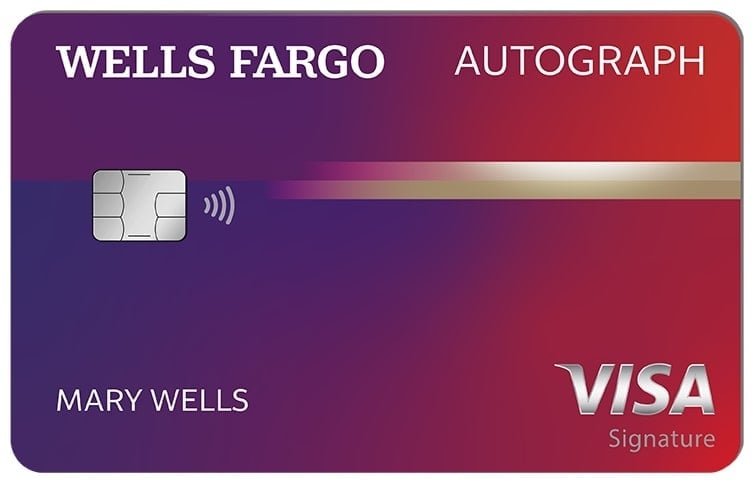How to Choose a Credit Card for Europe Travel
Look for cards without foreign transaction fees, then decide what perks you want to prioritize.

Many or all of the products on this page are from partners who compensate us when you click to or take an action on their website, but this does not influence our evaluations or ratings. Our opinions are our own.
If you're heading to Europe anytime soon, you probably have a lot of decisions to make, from which cities you're visiting, to what activities you want to do. But before you book that wine tour, it's a good idea to pick a credit card to bring with you to Europe. The right credit card can help you transact securely and save on foreign transaction fees. Often 1% to 3% of every international purchase you make, this fee will add up over time and effectively cancel out any rewards you earn.
So, what's the best credit card for Europe travel? Well, it depends. Answering these questions can help you determine what you need out of a credit card:
When is your trip?
It’s a good idea to open a credit card at least six months before your trip, so you can use your sign-up bonus to pay for it. But even if you’re leaving in a couple of weeks, a credit card can still help you earn rewards and save money on foreign transaction fees.
Some, like the Capital One Venture Rewards Credit Card, even allow you to use rewards to cover eligible travel expenses retroactively, giving you a little extra time to earn the welcome bonus.
Are you willing to pay an annual fee?
In general, cards with a higher annual fee come with more lucrative perks. But if you’re fee averse, you can still find some no-annual-fee credit cards with solid rewards.
Do you need travel insurance?
If you’re concerned your plans might change or you are going to rent a car, getting a credit card with travel protections can keep you from needing to purchase an independent policy. Just keep in mind that you might need to pay for most or all of the trip with your credit card to use these protections.
How will you spend your money?
Foodies who will splurge on fancy restaurants, focus on getting a credit card with high rewards on dining. For people traveling to multiple cities, getting a credit card with high rewards on travel purchases can help you earn more on your car, train or plane tickets. But if your spending doesn't fit into neat categories, a flat-rate credit card could help you earn solid rewards on all your purchases.
How much effort will you put into redeeming rewards?
The best travel credit cards give you the option to transfer your points to an issuer’s transfer partners. This gives you the opportunity to eke outsized value out of your points, but this can take significant effort. If you want a simpler way to redeem your rewards, prioritize finding a credit card that gives you a value of at least 1 cent per point when you redeem for a statement credit or by booking travel through an issuer’s travel portal.
Best credit cards for travel to Europe
Chase Sapphire Preferred® Card
Best for valuable rewards with a low annual fee
Sign-up bonus: Earn 75,000 bonus points after you spend $5,000 on purchases in the first 3 months from account opening.
Why we like it
The $95-annual-fee Chase Sapphire Preferred® Card isn't the flashiest, but it has no foreign transaction fees, strong rewards on travel and dining, and a $50 hotel credit when you book through Chase Travel℠. It also has great travel protections, including primary rental car coverage, and you can transfer rewards you earn to one of Chase's transfer partners at a 1:1 ratio.
Full list of Chase transfer partners
Airlines
- Aer Lingus (1:1 ratio).
- Air Canada (1:1 ratio).
- Air France-KLM (1:1 ratio).
- British Airways (1:1 ratio).
- Iberia (1:1 ratio).
- JetBlue (1:1 ratio).
- Singapore (1:1 ratio).
- Southwest (1:1 ratio).
- United (1:1 ratio).
- Virgin Atlantic (1:1 ratio).
Hotels
- Hyatt (1:1 ratio).
- IHG (1:1 ratio).
- Marriott (1:1 ratio).
Chase Sapphire Reserve®
Best for high redemption rates
Sign-up bonus: Earn 125,000 bonus points after you spend $6,000 on purchases in the first 3 months from account opening.
Why we like it
The Chase Sapphire Reserve® also earns solid rewards on dining and travel purchases and comes with valuable travel protections like primary rental coverage. But in exchange for a $795 annual fee, you'll also get a $300 travel credit; a fee credit for Global Entry or TSA PreCheck; $300 in dining credits; credits with Apple, DoorDash and StubHub; and access to Priority Pass lounges. Like with the Chase Sapphire Preferred® Card, you can transfer any points you earn on the Chase Sapphire Reserve® to one of Chase's transfer partners.
Capital One Venture X Rewards Credit Card
Best for high rewards rate on all purchases
Sign-up bonus: Earn 75,000 bonus miles when you spend $4,000 on purchases in the first 3 months from account opening, equal to $750 in travel.
Why we like it
In exchange for the Capital One Venture X Rewards Credit Card's $395 annual fee, you'll get a $300 credit for travel booked through Capital One, 10,000 bonus miles every year, Priority Pass lounge and Capital One Lounge access, a statement credit for Global Entry or TSA PreCheck, and valuable travel protections. You'll also earn 2 miles on most purchases. Rewards can be redeemed to book travel directly on the Capital One Travel portal, as a statement credit to cover the cost of travel purchases, or you can transfer your miles to one of Capital One's transfer partners.
Full list of Capital One transfer partners
Airlines
- Aeromexico (1:1 ratio).
- Air Canada (1:1 ratio).
- Air France-KLM (1:1 ratio).
- Avianca (1:1 ratio).
- British Airways (1:1 ratio).
- Cathay Pacific (1:1 ratio).
- Emirates (1:1 ratio).
- Etihad (1:1 ratio).
- EVA (2:1.5 ratio).
- Finnair (1:1 ratio).
- Japan Airlines (2:1.5 ratio).
- JetBlue (5:3 ratio).
- Qantas (1:1 ratio).
- Qatar Airways (1:1 ratio).
- Singapore Airlines (1:1 ratio).
- TAP Air Portugal (1:1 ratio).
- Turkish Airlines (1:1 ratio).
- Virgin Red (1:1 ratio).
Hotels
- Accor (2:1 ratio).
- Choice Privileges Hotels (1:1 ratio).
- I Prefer Hotel Rewards (1:2 ratio).
- Wyndham Rewards (1:1 ratio).
» Learn more: How to pick a premium travel credit card
Wells Fargo Autograph® Card
Best for no annual fee
Sign-up bonus: Earn 20,000 bonus points when you spend $1,000 in purchases in the first 3 months - that's a $200 cash redemption value.
Why we like it
The Wells Fargo Autograph® Card lacks some of the perks that other cards on this list have, but it still packs a punch for a card with a $0 annual fee. Its 3 points per dollar on restaurants, gas stations, travel, transit, popular streaming services and phone plans will help you rack up points quickly. Plus, you can redeem your rewards as a statement credit or by transferring them to one of Wells Fargo's transfer partners.
Full list of Wells Fargo transfer partners
Airlines
- Aer Lingus (1:1 ratio).
- Air France-KLM (1:1 ratio).
- Avianca (1:1 ratio).
- British Airways (1:1 ratio).
- Iberia (1:1 ratio).
- JetBlue (1:1 ratio).
- Virgin Atlantic (1:1 ratio).
- Virgin Red (1:1 ratio).
Hotels
- Choice Privileges Hotels (1:2 ratio).
» Learn more: What are travel points worth and why do they matter?
Other options
You could also get a hotel or airline credit card. But since these rewards are less flexible, this is only a good option if you already know what airline you're planning on flying or hotel brand you want to stay at.
For example, the sign-up bonus on United℠ Explorer Card could help you save on your flight, but only if you're flying United Airlines or one of its partners. If you decide to fly American Airlines, you're out of luck. Similarly, hotel points you earn on the World of Hyatt Credit Card will help you save money only if you're staying in an area with Hyatt hotels.
On the other hand, if you don't want to bother with redeeming points and would rather earn more flexible rewards, consider sticking with a cash back card. The $0-annual-fee Capital One Savor Cash Rewards Credit Card earns rewards on dining and entertainment, which could be really useful if you're planning to hit up some art museums in Italy or go to a play in London. Just watch out for foreign transaction fees. The Capital One Savor Cash Rewards Credit Card doesn't charge this fee, but many cash back cards do.
» Learn more: Cash back vs. travel: How to choose credit card rewards
Consider carrying more than one card
Having multiple credit cards in your wallet can increase your rewards earnings and offer more perks than one card alone. Say you get the Capital One Venture X Rewards Credit Card for lounge access and Global Entry. You'll earn 2 miles per dollar on most of your purchases, which is a solid deal. But pair that with the Capital One Savor Cash Rewards Credit Card and you'll also be able to earn 3% on your dining and entertainment purchases, while still earning at least 2 miles on everything else. As a bonus: any rewards you earn on the Capital One Savor Cash Rewards Credit Card can be transferred to the Capital One Venture X Rewards Credit Card.
Frequently Asked Questions
What credit card is best for European travel?
The best credit card for Europe will depend on your specific situation, but most people could benefit from getting the Chase Sapphire Preferred® Card. It has a modest annual fee, doesn't charge foreign transaction fees and earns 3x on dining and 2x on travel purchases made outside of Chase's travel portal, where it earns 5x on purchases. It's also a Visa, which is widely accepted in Europe.
Is it better to use cash or a credit card when traveling in Europe?
It's often best to carry cash and credit cards. Use your credit card for larger purchases, and keep some cash on hand for smaller transactions, tips or for places that don't accept cards. Order foreign currency before you travel or pull it out of the ATM (and avoid fees) to get the best rates.
Is American Express accepted in Europe?
Visa and Mastercard are much more widely accepted across Europe than AmEx. That said, you'll likely have little problems using AmEx in large European cities or tourist areas, or at major retailers. If you want to patronize smaller businesses and local shops or visit rural areas, you'd be better off with a Visa or Mastercard.
How to maximize your rewards
You want a travel credit card that prioritizes what’s important to you. Here are some of the best travel credit cards of 2026:
- Flexibility, point transfers and a large bonus: Chase Sapphire Preferred® Card
- No annual fee: Wells Fargo Autograph® Card
- Flat-rate travel rewards: Capital One Venture Rewards Credit Card
- Bonus travel rewards and high-end perks: Chase Sapphire Reserve®
- Luxury perks: American Express Platinum Card®
- Business travelers: Ink Business Preferred® Credit Card
Article sources
NerdWallet writers are subject matter authorities who use primary,
trustworthy sources to inform their work, including peer-reviewed
studies, government websites, academic research and interviews with
industry experts. All content is fact-checked for accuracy, timeliness
and relevance. You can learn more about NerdWallet's high
standards for journalism by reading our
editorial guidelines.
Limited Time Only: Earn $1,000 Toward Travel!
Capital One Venture Rewards Credit Card 
Travel

For a limited time, the
Capital One Venture Rewards Credit Card is offering new cardholders an especially rich bonus: Enjoy $250 to use on Capital One Travel in your first cardholder year, plus earn 75,000 bonus miles once you spend $4,000 on purchases within the first 3 months from account opening - that’s equal to $1,000 in travel!
More like this
Related articles











